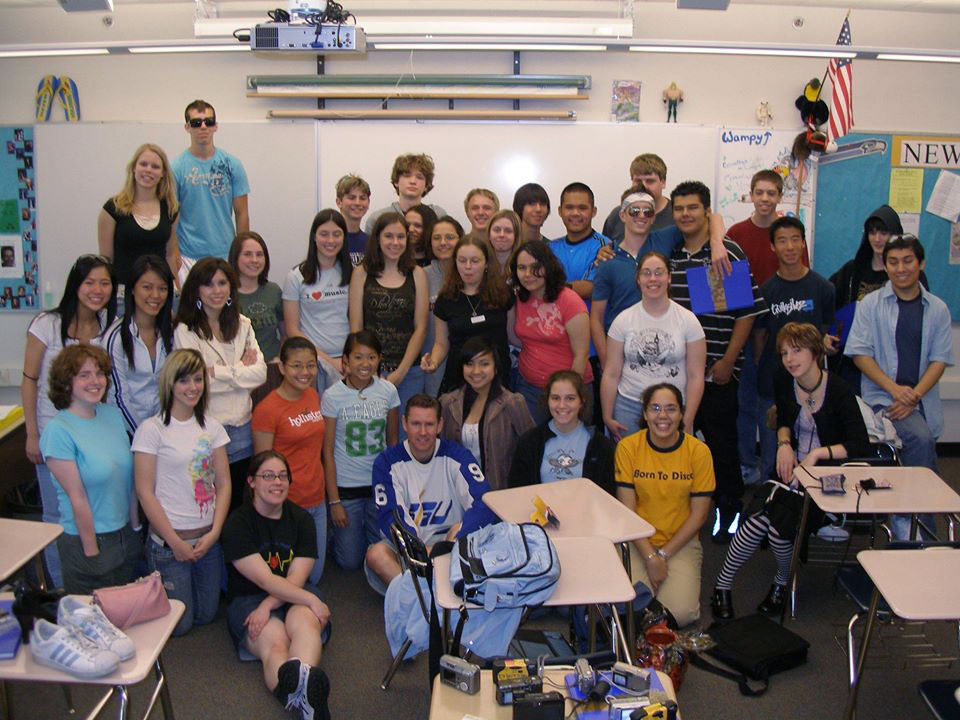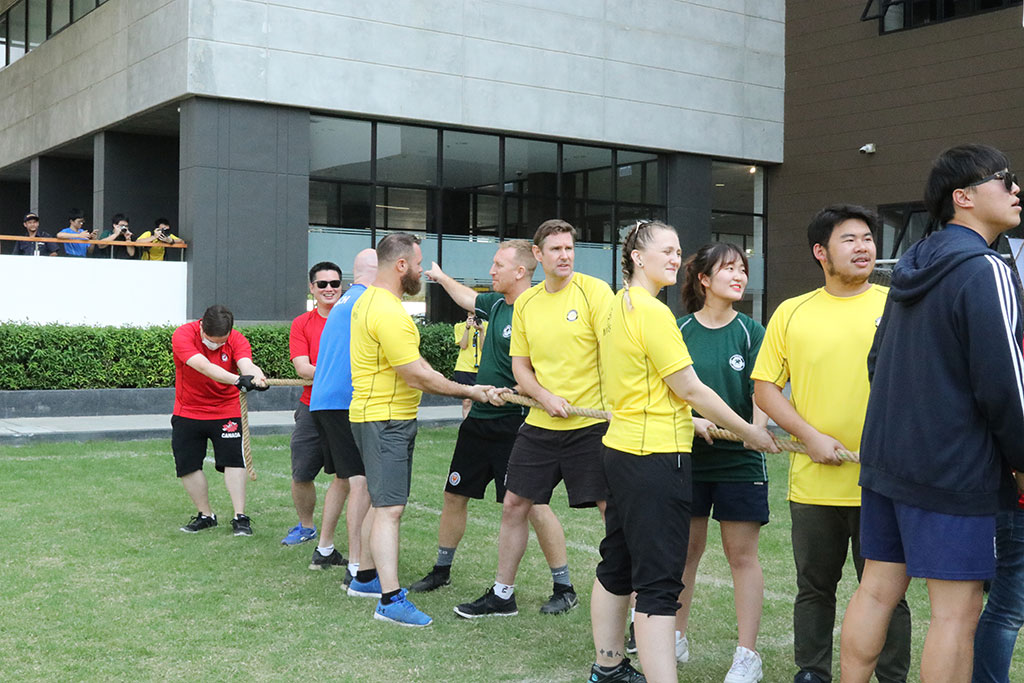Education was once a solitary pursuit for Dr. Stephen Coryelle, but time and experience taught him the value of working with others, first as a teacher, then as an administrator. His passion for collaboration helped his former students succeed. Now it’s inspiring MUIDS’ teachers to succeed together.
Dr. Coryelle was kind enough to discuss his most formative experiences as an educator, and how they influence his approach to managing teachers and helping students.
What inspired you to become an educator?
Nothing inspired me at the beginning, other than a need to earn some extra money substitute teaching while I was in graduate school. After two years that sub job turned into a permanent position, one I took while I figured out my next steps.
It was only in the year that followed, in which the school dealt with a shared tragedy by coming together as a family, that I realized how special schools can be. From that time on I devoted myself to better understanding how to serve schools and students.

After becoming an administrator, you joined the Peace Corps? What is the mission of that program? Why did you join it?
The Peace Corps is a program under the United States government that places people in developing countries all over the world. Governments from these countries request a Peace Corps presence to help them create a program that addresses their areas of need such as development, health initiatives, education and other areas. Peace Corps members have served in 141 countries, and are currently assisting in 62 countries (Montenegro is the latest addition).
I joined because I had always wanted to live abroad, and I found myself at a crossroads where I could keep trying to do what I always did, or take advantage of an open window at the time and, as my colleague at the time put it, “take a hard left” and see what else was out there. I decided to take that “hard left” and have been living away from the United States ever since.
What was your biggest contribution to the Peace Corps’ mission?
I served in Albania in a city under a superintendent of an educational district. The program I created was to train teachers in instructional methods and school administrators in instructional leadership. Albania does not have a formal system of training school administrators; a teacher is simply told they are an administrator. I trained those administrators in how to lead and manage their teachers.
Albania also introduced me to my wife, Megi, who is Albanian. One of Peace Corps’s three goals is to share your host country’s culture and values with people in the United States, and Megi has been a wonderful ambassador in that regard.
You joined MUIDS after the Peace Corps. What is your role at the school?
I am the Deputy Director for Academics. My main job is to supervise and evaluate all academic programs and teachers. The vast majority of our teachers are quite good practitioners, so more often than not I am offering adjustments to their teaching and helping them build their already large capacity. I try my best to get around and see as many classes as I can, and to make myself available to their needs.
In the United States I only worked with Americans, and I enjoy the fact that our teachers at MUIDS come from all over the world. I can say with complete honesty that my current job has been the one in leadership I have enjoyed the most.

How have your views of education evolved over time?
I used to see things purely from a teaching perspective, as that was my job before I became an administrator. I believed then, and still believe, that the teachers are the most important parts of a school.
Managing teachers though has shown me that much of education is about relationships, not only academics, and managing those relationships is a key part of being an educational leader.
I also learned how important collaboration is. When I was a teacher I used to teach in isolation. It was only when collaboration was mandated by the district that I reluctantly joined in, and found myself immeasurably improved as a result. I want the same experience for MUIDS’ teachers and help push them in that direction.
